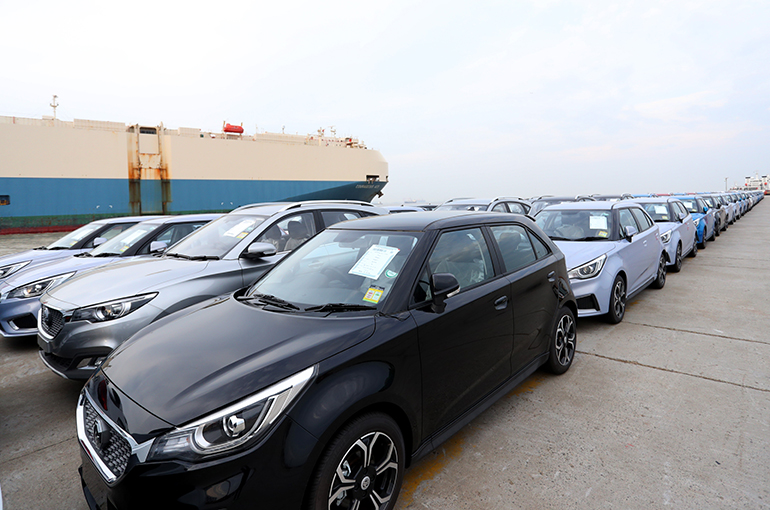Select Language:
The automobile exports from regions in central and western China experienced remarkable growth in the first half of the year, driven by a surge in exports of new energy vehicles (NEVs).
In Shaanxi Province, car exports increased by 57% to approximately 206,000 units during the six months ending June 30, compared to the previous year. The export value also rose by 52%, reaching 31.2 billion yuan (about $4.3 billion). Notably, NEV export volume and value more than doubled, totaling 179,500 units and 23.9 billion yuan, respectively. The impressive growth in Shaanxi’s auto exports primarily stems from the formation of an industrial cluster after major automakers like BYD and Geely established their presence in the area. During this period, Shaanxi ranked sixth nationwide in automotive production.
Anhui Province, home to manufacturing plants for seven automakers including BYD, Chery, Nio, and Volkswagen, exported 461,000 vehicles in the first half of the year, maintaining its status as China’s top export region for cars. NEV exports from Anhui climbed 30% year-over-year.
Exports of mechanical and electrical products from Anhui rose 19% to 222.9 billion yuan (roughly $31 billion), making up nearly 72% of the province’s total exports.
Henan Province saw its auto exports grow 22% to 169,000 units from January to June, with the export value increasing by 66% to 24.4 billion yuan. The NEV export value surged an impressive 276% to 13.1 billion yuan. Major exports from Henan included vehicles produced by SAIC Motor, Nissan, Chery, Yutong Bus, and Haima Automobiles.
This upward trend in auto exports, especially electric vehicles, indicates that the central and western regions of China have established a robust supply chain. The automotive sector has become a core driver in optimizing the regions’ foreign trade structure, thereby boosting overall trade volume, analysts noted.
Previously, export reliance in these provinces was primarily on electronics and information device foundries operated by large companies such as Foxconn and Samsung, the analysts added.






